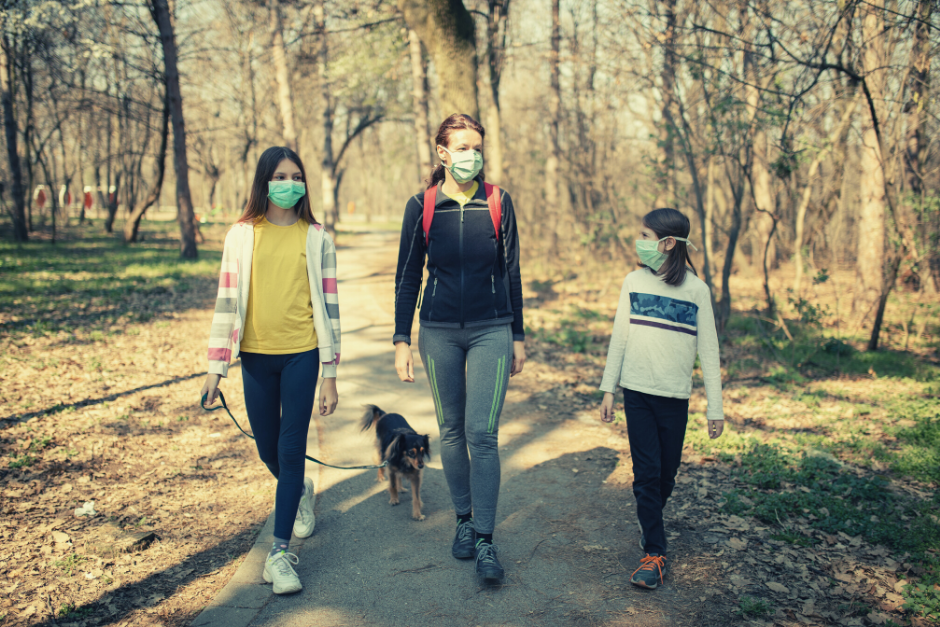As we mark more than a year of COVID, much has been written about the impacts of social distancing, isolation and pandemic uncertainty on the mental health of both adults and children. Clearly, this time has weighed heavily on many.
Yet, some recent research suggests that when it comes to substance use the effects of the pandemic are less conclusive for adolescents and teens than they may be for adults who have consistently reported increases in use, abuse and overdoses over these 12 months.
On the one hand, we’ve seen a major increase in mental health issues like anxiety and depression across generations, and this tends to be a predictor for increased substance use. On the other hand, some of the key factors that influence whether an adolescent or a teen drinks or uses drugs have been mitigated by the circumstances of the pandemic.
What the Pandemic Cost Teens
Adolescence is an important period of social and emotional development, which has been disrupted. Young people do best with structure and predictability, of which there has been very little over the last year. For many, the experience has been traumatic and some, like the adults, are self-medicating to cope.
In a new study by the nonprofit FAIR Health, researchers looked at two billion U.S. health insurance claims between 2019 and 2020. For people ranging in ages from 13 to 22, the study found sharp spikes from before the pandemic to now in a range of psychological conditions including major depression, generalized anxiety disorder, adjustment disorder, self-harm, substance abuse, overdoses, OCD, ADHD and tic disorders.
The highest spikes for substance-related issues occurred last spring. In March 2020, the number of claims for drug overdoses among 13- to 18-year-olds increased by 95 percent, compared to the year before. In April they jumped by 119 percent, compared to April 2019. For substance abuse claims that stopped short of overdose, there was a 65 percent increase in March and a 63 percent increase in April. In the 19-22 age group, the peak increase for overdoses was a 65 percent jump in May; substance abuse in general topped out at a 27 percent increase in April.
These numbers are alarming, but other research suggests that the pandemic may result in some positive effects on adolescent and teen substance use.
According to a recent article in the Journal of Adolescent Health, the pandemic has mitigated some of the major risk factors for teen substance use. These include:
- Lack of parental supervision or connection
- school stress
- peer pressure
- easy access
- early exposure
The Benefits of Being Home
The health crisis forced both parents and children to spend more time at home. For adolescents and teens, this had the unintended positive consequence of deeper connections and more open communication with parents and family. (Certainly, this is not the case for the many young people living in turbulent or abusive households or those struggling to put food on the table.)
Staying home also meant that adolescents and teens have less contact with peers and less access to illegal substances. (This is typically not the case in households where parents are abusing alcohol and drugs.)
Meanwhile, for young people, who struggle socially or academically at school, remote learning has been a major stress-reliever decreasing their need to find healthy or unhealthy coping strategies.
Finally, the article argues that the circumstances of the pandemic could be delaying when an adolescent or a teen first experiments with drugs or alcohol. We’ve known for a long time that the earlier a child initiates substance use, the higher the likelihood of developing alcohol or drug problems later in life. So, delaying has traditionally been one of the primary objectives in prevention science and implementation. With the pandemic, the opportunities for an adolescent to try something new and illicit, out of sight of their parents, are simply more limited.
The data doesn’t yet exist to back up the JAH thesis, although two studies sited by Healthline show a decrease in the number of young people who are vaping and a decline in drinking among college students who returned home during the pandemic.
No matter what we learn about pandemic-related drug and alcohol use in the coming months and years, as we begin to see the light at the end of the tunnel with COVID-19, it is going to be more important than ever to have strong supports in place to help address the mental health and teen substance use challenges our young people have ahead of them. If you want to learn more about how to support an adolescent or teen, give me a call at (303) 542-0180.

